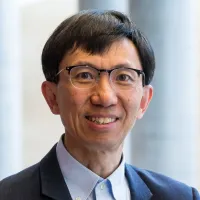
Dr. Anthony Lau
Traditionally, professional engineers who wanted to further their education and move into positions of greater responsibility in their work had to choose either a Master of Engineering degree or an MBA. Now they can consider another option. The one-year Master of Engineering Leadership (MEL) programs at UBC offer the benefits of both, giving students a strong interdisciplinary technical education combined with courses in business and leadership taught by faculty at the UBC Sauder’s Robert H. Lee Graduate School.
The MEL in Clean Energy Engineering equips students to take on complex clean energy issues. The MEL technical classes take an interdisciplinary approach, bringing in different fields of engineering. This gives students a broad integrated perspective and exposes them to the technical knowledge and tools needed to develop innovative solutions. Students also benefit from the program’s connection to the Clean Energy Research Centre, which is home to some of the world’s leading researchers pursuing sustainable solutions to energy challenges in collaboration with industry, government and other academic partners.
The MEL business classes develop students’ leadership, communication, strategy development and collaborative skills, giving our graduates the skills and confidence to take on positions of increasing leadership and responsibility in their organizations.
UBC is a renowned university that attracts talented individuals from around the world who are keen to make the most of our outstanding resources and research opportunities. It is a great place to do research, teach and learn.
Experience
Dr. Anthony Lau has been a faculty member at UBC since 1988 after completing his doctorate at UBC in an interdisciplinary program that combined bioresource engineering with mechanical engineering, plant science and soil science. His area of research interest is waste management for resource recovery, focusing on two major sub-areas: biomass feedstock engineering and bioconversion processes and systems. Research work on biomass feedstock engineering includes the characterization, preprocessing, storage, and quality improvement and management of lignocellulosic waste biomass (forest-origin residues, agricultural crop residues) as the main components of the biomass supply chain logistics, which bridges the gap between biomass harvesting and biofuel production in different types of conversion facilities. The research on solid biofuel involves both the densified form (pellets) and non-densified form (chips and residues). Studies on bioconversion processes and systems are primarily aerobic composting and anaerobic fermentation of non-woody waste biomass (manure, food waste, biosolids).